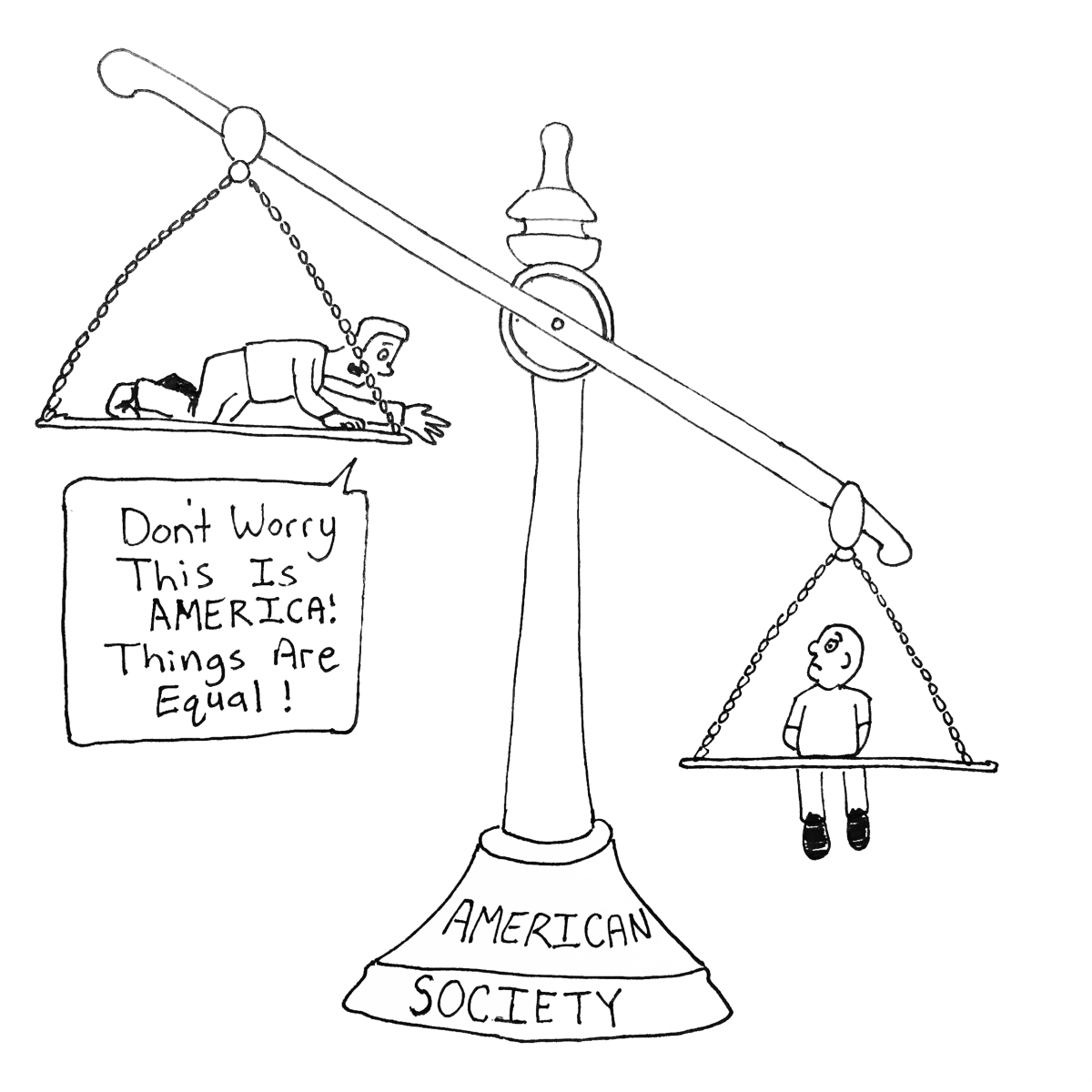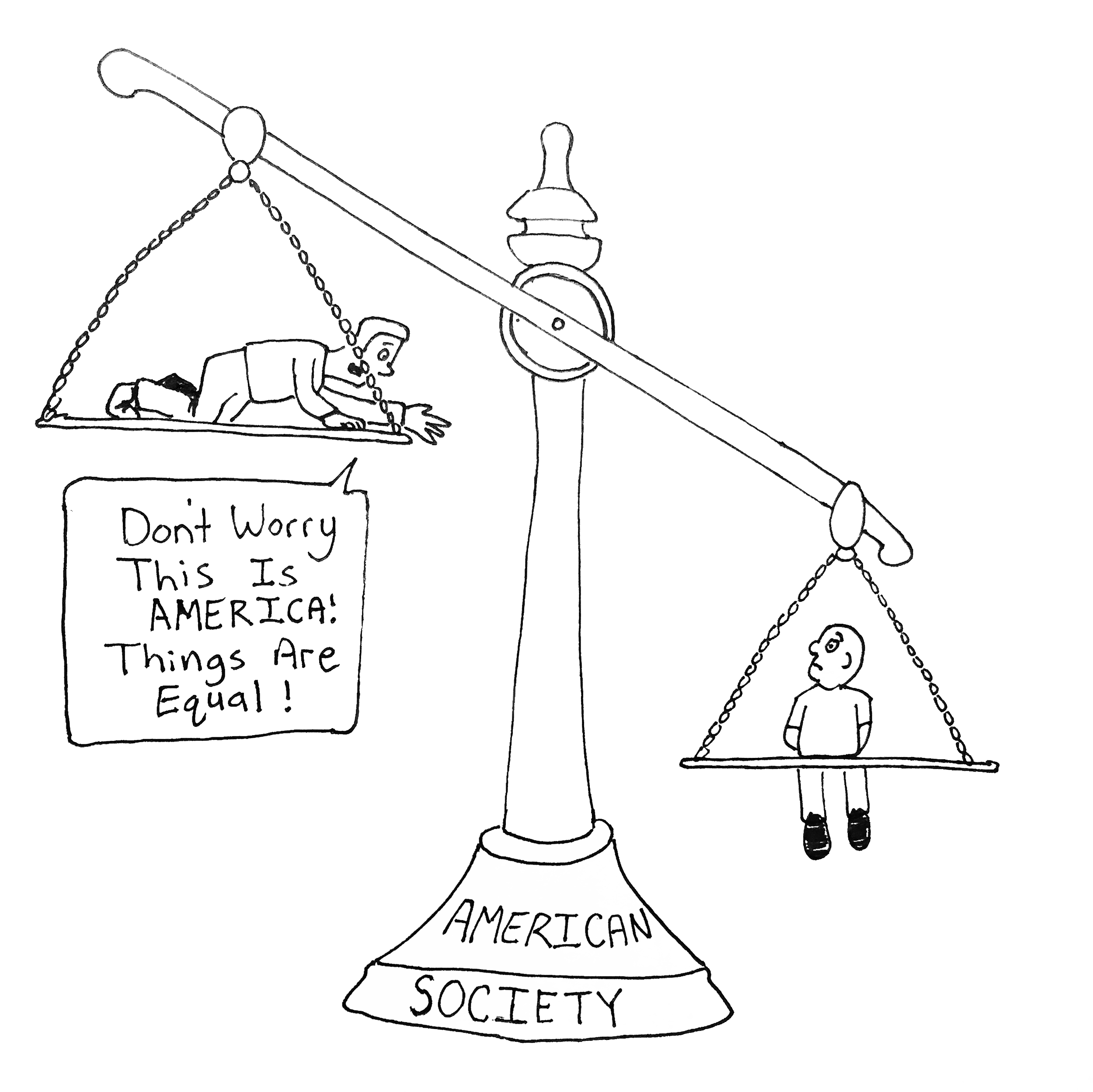STAR // Eddie Blake
It has never been, and never will be appropriate to challenge the idea of the “black lives matter” movement.
Many advocates of the movement will be the first to agree that indeed, all lives do matter. However, those who use this rebuttal are completely missing the point.
Of course all lives matter, but it seems as though nowadays, many need to be reminded that black lives need a special and distinct focus. Why? Because according to the CDC, the number one cause of death of black males ages 15-24 is homicide.
Truthfully, many generations of Americans are forgetting that minorities have been mistreated for much longer than just the past few years. Racism did not end when slavery was abolished, nor did it end when the Jim Crow laws were lifted in most of the country (some states even kept the laws in books until as late as the year 2000).
Cornell University history professor Edward E. Baptist wrote a column for the New York Times communicating his frustration with the reactions he has received during his career when teaching slavery to his students.
His anecdote told of two white students who argued that “criticizing enslavers was modern-day moralizing” and that “slaves might have actually been happy.”
It’s this type of denial and ignorance that inhibits any change in thinking that might further social progress.
In the comments section of that very article, some readers claim that we shouldn’t give “daily reminders and guilt trips on how evil America was” and we should rather “celebrate the fact we overcame them in a relatively short period of time.”
Some Americans still reject the notion that racism is alive in 2015. Maybe this is because some Americans are privileged to live in a city or town where they don’t witness discrimination first hand.
They are able to live in a comfortable bubble where the only discussions of racial injustices are started on news stations after the extreme harassment or murder of a person who is not white. Then many of us decide to start “protesting” institutionalized racism.
Standing against racial inequality shouldn’t be a social trend like eating kale or growing a beard. Racism hasn’t just bloomed like an ugly flower in America’s perfect garden. The truth is, it’s never gone away and the next generation is starting to get mad enough for the rest of the country to take notice.
Unfortunately, many white Americans become offended when confronted with the fact that their ancestors may have endorsed racism.
It’s time Americans came to terms with the fact that prejudice was indeed institutionalized to help certain races (and genders) maintain an advantage over others.
People have no control over what race, ethnicity or gender they are.
But it’s a problem when one contests their own privilege and refuses to acknowledge there is in issue, whether it’s in your neighborhood, or not. Pretending there isn’t a problem is just as bad as contributing to it.
White Americans, whether they are in support of the black lives matter movement or not, can’t speak on the behalf of any other race.
What all Americans can do is acknowledge there is still racism in our country and ask themselves how they can help fight it. That’s our first step in ending it.





![[Both photos courtesy of sonoma.edu]
Ming-Ting Mike Lee stepped in as the new SSU president following Sakakis resignation in July 2022](https://sonomastatestar.com/wp-content/uploads/2024/04/CC4520AB-22A7-41B2-9F6F-2A2D5F76A28C-1200x1200.jpeg)



























